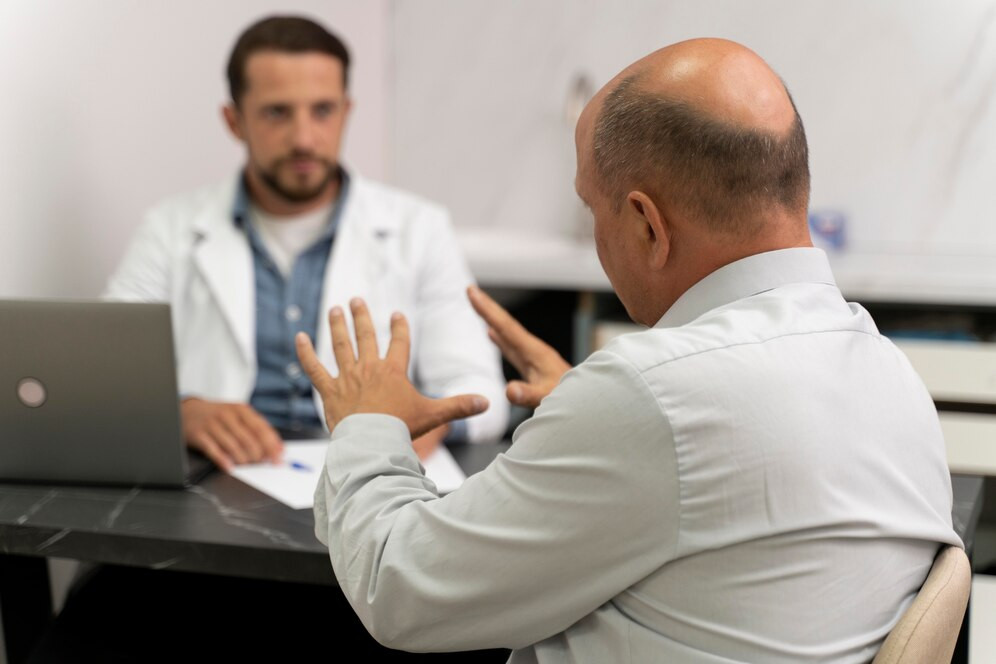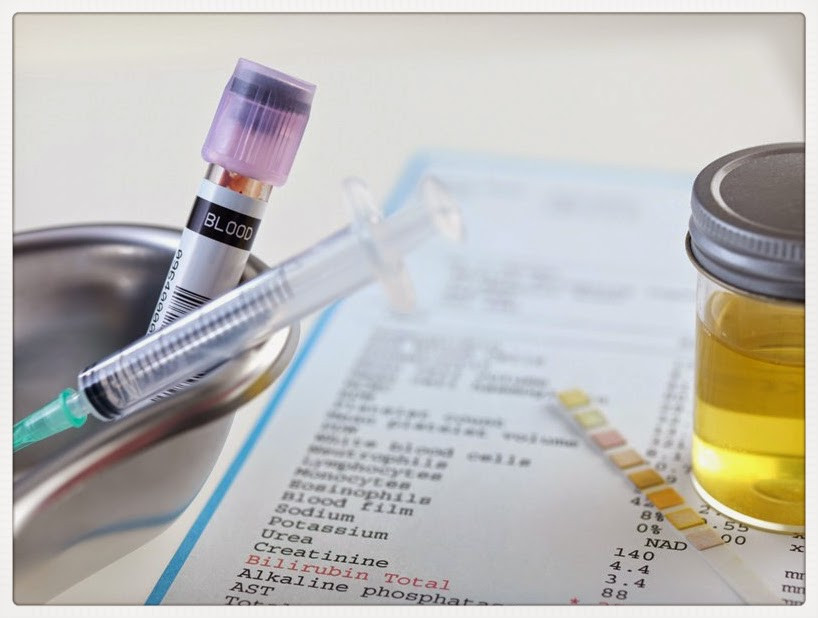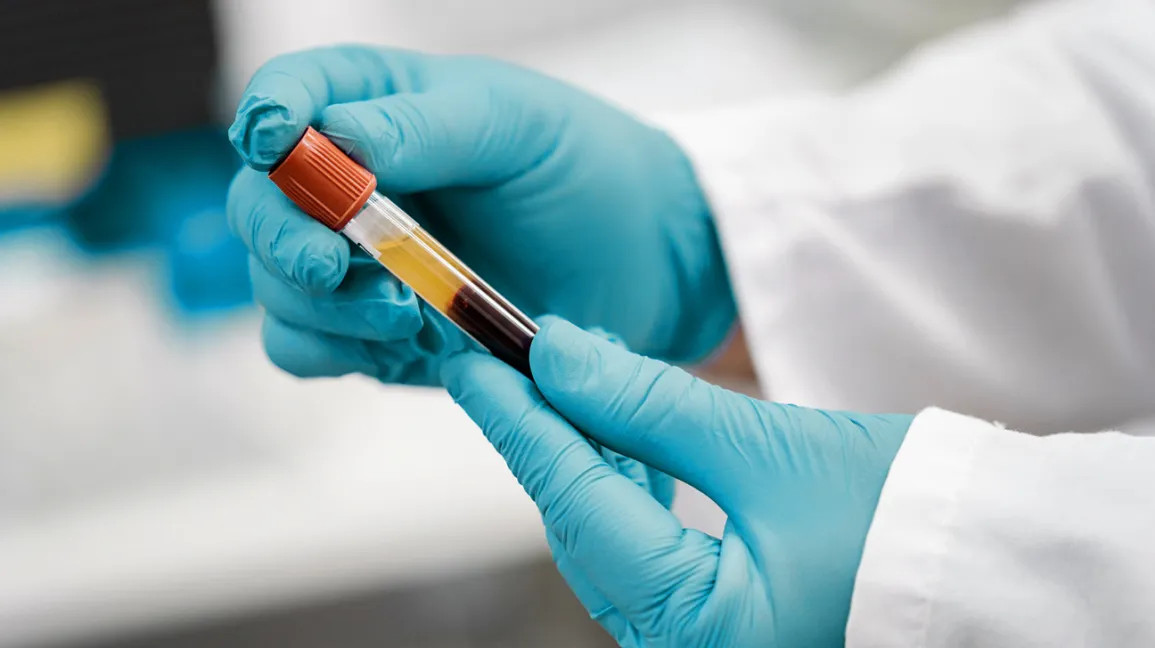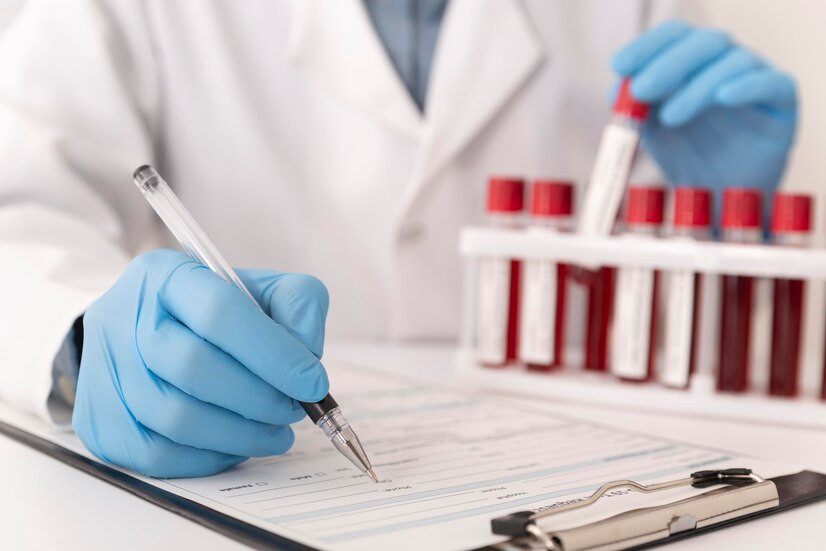Definisi
Pemeriksaan gonore adalah tes yang dilakukan untuk mendeteksi keberadaan bakteri gonore dalam sampel cairan tubuh. Gonore adalah infeksi menular seksual (IMS) yang umum terjadi dan disebabkan oleh bakteri Neisseria gonorrhoeae.
Gonore dapat menular pada siapa saja yang melakukan hubungan seksual melalui vagina, oral, atau anal dengan orang yang terinfeksi gonore. Bakteri ini umumnya menginfeksi area kelamin genital, tetapi juga dapat menginfeksi rektum (bagian ujung usus besar yang terhubung dengan dubur), tenggorokan, mata, dan bagian tubuh lainnya.
Infeksi ini dapat menyerang individu dari semua demografi, dengan kasus lebih banyak ditemukan pada pria dan wanita usia reproduktif. Wanita dengan gonore dapat mengalami komplikasi yang parah, seperti peradangan saluran tuba fallopi (salpingitis), kehamilan di luar kandungan, keguguran, atau penularan dari ibu ke bayi baru lahir.
Jika Anda merasa telah tertular gonore, sangat penting untuk mencari pertolongan medis dari tenaga kesehatan profesional. Penting untuk menjalani pemeriksaan skrining infeksi menular seksual (IMS) ini meskipun Anda tidak menunjukkan gejala bila Anda aktif secara seksual.
Indikasi
Pemeriksaan gonore bertujuan untuk mengidentifikasi adanya infeksi gonore. Tes dilakukan berdasarkan dua tujuan yang berbeda:
- Skrining
Tes skrining digunakan untuk mendeteksi penyakit pada individu yang tidak menunjukkan gejala, dengan tujuan untuk mengidentifikasi penyakit pada tahap lebih dini. Selama proses skrining, tenaga kesehatan dapat melakukan skrining untuk penyakit menular seksual (PMS) lainnya secara bersamaan.
- Diagnosis
Meskipun tidak semua pasien menunjukkan gejala infeksi gonore, Anda bisa mengalami gejala seperti nyeri atau sensasi terbakar saat buang air kecil. Pemeriksaan gonore dapat memastikan atau menyingkirkan gonore sebagai penyebab utama gejala Anda. Karena kemiripan gejala antara gonore dan klamidia, di mana keduanya merupakan penyakit menular seksual (PMS) yang lazim, pemeriksaan kedua penyakit ini sering dilakukan secara bersamaan.
Skrining untuk penyakit gonore dan PMS lainnya harus dilakukan pada individu yang memiliki kemungkinan lebih tinggi untuk terpapar infeksi dan/atau mengalami komplikasi yang terkait penyakitnya. Skrining untuk gonore direkomendasikan untuk perempuan, termasuk individu yang sedang hamil, yang berusia di bawah 25 tahun. Selain itu, individu yang berusia 25 tahun ke atas harus diperiksa jika mereka memiliki risiko infeksi yang tinggi.
Jika Anda memiliki beberapa pasangan seksual atau melakukan aktivitas seksual tanpa kondom, termasuk seks oral, Anda juga dianggap berisiko terinfeksi penyakit menular seksual. Hal ini tetap berlaku bahkan jika potensi paparan penyakit sudah terjadi bertahun-tahun yang lalu.
Kontraindikasi
Tidak ada kondisi tertentu yang menjadi kontraindikasi dalam melakukan pemeriksaan gonore.
Persiapan Sebelum Pemeriksaan
Tenaga kesehatan akan menginformasikan Anda mengenai persiapan yang harus dilakukan sebelum menjalani pemeriksaan gonore. Sebelum melakukan tes, sangat penting untuk memberi tahu dokter bila Anda sedang dalam pengobatan dengan antibiotik apapun. Dianjurkan agar Anda menunggu selama satu hingga dua jam setelah buang air kecil terakhir Anda sebelum mengambil sampel urine.
Wanita mungkin perlu melakukan langkah ekstra sebelum menjalani pemeriksaan gonore. Wanita yang menjalani tes swab pada serviks (leher rahim) atau vagina harus menginformasikan dokter bila mereka memakai cairan pembersih atau krim vagina dalam beberapa waktu terakhir. Sebelum melakukan tes, Anda akan diberitahu untuk tidak memakai cairan pembersih atau krim vagina sehari sebelum pemeriksaan.
Prosedur Pemeriksaan
Tiga metode pemeriksaan yang digunakan untuk mengidentifikasi gonore adalah:
- Metode kultur bakteri yang digunakan untuk mendeteksi pertumbuhan bakteri N. gonorrhoeae
- Teknik pewarnaan Gram yang mengamati bakteri di bawah mikroskop dengan menggunakan warna-warna tertentu
- Tes Amplifikasi Asam Nukleat (NAAT), yaitu metode diagnostik yang dapat mendeteksi bukti genetik infeksi
Setiap pilihan memiliki kelebihan dan kekurangannya masing-masing.
Untuk melakukan pemeriksaan gonore, spesimen sampel cairan yang digunakan harus berasal dari area tubuh yang kemungkinan terinfeksi. Selama pemeriksaan berlangsung, sampel bisa diambil dari area tubuh seperti leher rahim (serviks), uretra, mulut, atau rektum, dengan menggunakan swab atau sikat khusus.
Ada dua metode untuk mengumpulkan sampel:
- Sampel urine yang pertama kali diambil. Untuk mendapatkan sampel ini, gunakan botol steril yang diberikan petugas untuk menampung urine yang pertama kali keluar. Untuk mendapatkan hasil pemeriksaan yang tepat, Anda harus menahan diri untuk tidak buang air kecil selama dua jam sebelum tes.
- Spesimen swab. Tenaga kesehatan akan menggunakan swab atau sikat khusus untuk mengambil cairan dan sel, biasanya dari area kelamin. Saat memeriksa pria, dokter dapat melakukan swab untuk mendapatkan sampel dari uretra, yaitu saluran dalam penis yang menjadi tempat keluarnya urine. Untuk wanita, pemeriksaan gonore dilakukan dengan mengambil sampel dari leher rahim. Swab juga dapat dilakukan pada rektum, tenggorokan, atau mata dalam kasus tertentu.
Nilai Normal dan Abnormal
Hasil pemeriksaan gonore dikategorikan sebagai positif atau negatif. Hasil positif, juga dikenal sebagai hasil abnormal, menandakan adanya infeksi gonore yang sedang berlangsung dan memerlukan pengobatan. Hasil tes negatif menunjukkan tidak ada infeksi pada saat tes dilakukan.
Hasil dan Saran (Pemeriksaan Lanjutan)
Hasil tes yang normal (atau negatif) menunjukkan tidak adanya infeksi gonore dari sampel yang diperiksa. Waktu yang diperlukan seseorang yang terinfeksi gonore untuk mendapatkan hasil tes positif dapat bervariasi dari beberapa hari hingga beberapa minggu, tergantung pada jenis tes yang digunakan. Oleh karena itu, jika tes dilakukan tidak lama setelah terpapar bakteri penyebab gonore, hasil negatif tidak secara pasti menandakan bahwa Anda tidak terinfeksi gonore.
Hasil tes yang abnormal (atau positif) menunjukkan adanya bakteri gonore dalam tubuh Anda. Pemberian antibiotik segera diperlukan untuk mengobati infeksi. Bila Anda terinfeksi, sangat penting untuk memberi tahu pasangan seksual Anda tentang kondisi Anda, sehingga mereka dapat menjalani pemeriksaan dan menerima pengobatan yang tepat juga, jika diperlukan.
Meskipun CDC menyarankan untuk memberi tahu semua pasangan seksual dalam waktu 90 hari sebelum timbulnya gejala atau konfirmasi diagnosis, namun sebaiknya Anda juga menginformasikan pasangan yang berhubungan seksual dengan Anda dalam waktu di atas 90 hari sebelumnya.
Untuk memastikan infeksi gonore hilang sepenuhnya dari tubuh, sangat penting untuk mematuhi anjuran dari dokter dan menerima semua obat yang telah diresepkan. Setelah pengobatan selesai, pemeriksaan lanjutan untuk mengetahui bila bakteri telah sepenuhnya hilang di tubuh umumnya tidak diperlukan, asalkan antibiotik yang diresepkan sudah digunakan.
Konsultasikan ke Dokter yang Tepat
Jika hasil tes Anda positif, Anda dapat berkonsultasi dengan dokter umum atau dokter spesialis kulit dan kelamin untuk mendapatkan pengobatan yang tepat.
Jenis strain bakteri gonore tertentu bisa membangun resistensi terhadap antibiotik tertentu. Hal ini menyiratkan bahwa bakteri telah mampu beradaptasi dan bertahan terhadap efek antibiotik tertentu, sehingga membuat obat menjadi tidak efektif.
Jika gejala Anda tidak membaik setelah pengobatan, dokter bisa merekomendasikan pemeriksaan "uji kepekaan antibiotik”. Tes ini membantu menentukan antibiotik mana yang paling efektif untuk mengobati infeksi gonore Anda.
Karena tingkat kekambuhan yang signifikan, dokter mungkin bisa meminta Anda untuk menjalani tes lain setelah tiga bulan, terlepas dari apakah pasangan Anda telah menjalani pengobatan atau belum.
Mau tahu informasi seputar hasil pemeriksaan laboratorium, radiologi, dan lainnya? Cek di sini, ya!
- dr Hanifa Rahma
Gonorrhea Test. (2020). Retrieved 12 September 2022, from https://medlineplus.gov/lab-tests/gonorrhea-test/
Gonorrhea. (2022). Retrieved 12 September 2022, from https://www.ncbi.nlm.nih.gov/books/NBK558903/
How Gonorrhea is Diagnosed. (2021). Retrieved 12 September 2022, from https://www.verywellhealth.com/how-gonorrhea-is-diagnosed-3132752
Gonorrhea test. (2022). Retrieved 12 September 2022, from https://www.testing.com/tests/gonorrhea-test/
How to Stain for Gonorrhea. (2022). Retrieved 12 September 2022, from https://www.vinmec.com/en/news/health-news/obstetrics-gynecology-and-assisted-reproductive-technologies-art/how-to-stain-for-gonorrhea/
What to Know about Gonorrhea. (2022). Retrieved 12 September 2022, from https://www.medicalnewstoday.com/articles/155653












